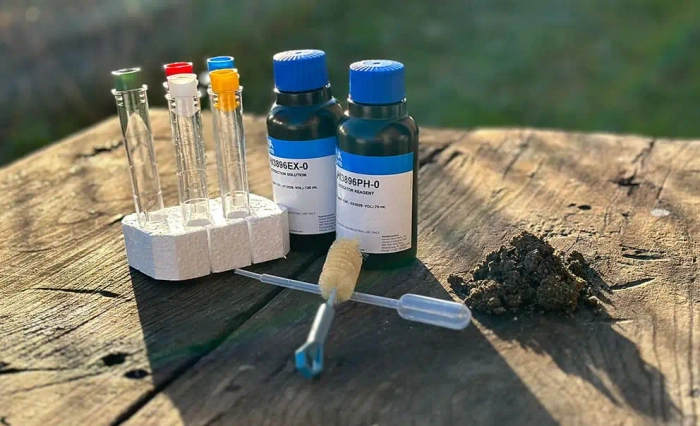Agricultural production is dependent on farmland quality, and a soil test can detect a problem in crop growth conditions in real time. Field suitability study with soil testing equipment aids in crop selection and land use decisions in farming.
Regular soil testing is vital not just for producers but also for all agribusiness actors, including agri-coops, crop insurers, banks, input providers, and commodities dealers. Soil testing machines are available in a variety of configurations, ranging from simple alternatives to more complex laboratory testing equipment, making it tough to select the ideal one for your agriculture farm in India. But don’t worry; this post will walk you through the essential elements to consider when selecting the best one for your requirements.
How to Select the Best Soil Testing Equipment?
Nitrogen (N), phosphorus (P), potassium (K), and soil pH are all often measured using test devices. These are the fundamentals, but a laboratory test may also detect salts or a variety of other nutrients, such as iron (Fe), which gardeners should be aware of. To make fertilizer choices. When selecting a soil testing machine, individuals must consider various factors:
Take Note of the Soil Testing Machine’s Measuring Accuracy
During the measuring procedure, measurement mistakes are unavoidable. To ensure that measurement results are precise and trustworthy, mistakes must be minimized, and products with high measurement accuracy must be used.
Take Note of the Soil Testing Machine’s Sensor Sensitivity
Sensitivity is a measure of the amount of change in response, and the higher the sensitivity, the better. To guarantee that the sensor in soil testing equipment has low power consumption, high sensitivity, and steady signal transmission, it is advisable to utilize imported low-power MCUs and high-quality operational amplifiers.
Keep Track of the Soil Testing Machine’s Material Quality
One of the assurances for the service life of the best soil testing machine is the material quality. A stringent production method is used to apply the waterproof and dustproof coating to the whole body, ensuring consistent monitoring of the components. How can the material’s quality be determined?
For high-temperature vacuum filling between the probe and the body, for example, it is advisable to use high-density epoxy resin, which may prevent moisture from entering the body to a great extent and improve sealing performance. The electrode is also crucial. The electrode is comprised of a highly processed alloy material that can sustain a powerful external impact while remaining unharmed.
Pay Close Attention to the Soil Testing Machine’s Probe.
To establish direct touch with the soil, the probe must be placed into it, and it is ideal to use high-quality ones. For example, 316 stainless steel is utilized as the raw material, which prevents rust, electrolysis, and salt and alkali corrosion.
Be Simple to Use
When selecting this sort of product, it is advisable to select one with a low threshold and easy steps that can be used for quick measurement without the need for reagents and a high number of tests.
Conclusion
Soil testing is an important tool for growers and farmers to use to assess the health and productivity of their property. That’s what makes it essential to choose the best soil testing machine for agriculture to gain a better understanding of your soil’s composition and make educated judgments regarding crop management measures such as irrigation, fertilization, and soil amendment by examining the soil texture, structure, and nutrient content.The results of soil testing can also be used to detect possible soil health concerns and to build soil improvement programs to maximize agricultural yields and long-term sustainability. Soil testing, whether it’s a simple soil test or a biological soil analysis Test, is an important investment in the health of your land and the profitability of your agricultural enterprise.

